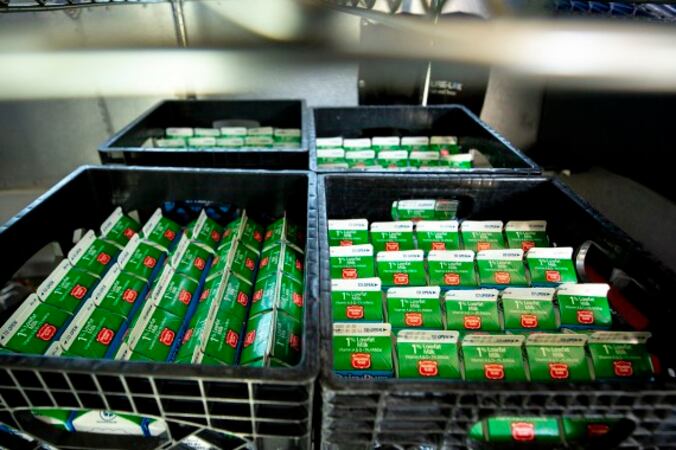Colorado voters will decide this November whether to cover the cost of school meals for all students.
All Colorado students have had access to free lunch over the last two years thanks to pandemic-related federal waivers that are set to expire this summer. During that time, many school districts reported more students eating lunch, sometimes as many as 40% more than in pre-pandemic times.
Lawmakers have sent a measure to the voters that would bring in an additional $101 million a year by limiting tax deductions for high-income earners. Those new state funds would supplement additional federal dollars that schools can claim by participating in the community eligibility program. Rather than relying on families filling out applications for subsidized lunches, school districts could use eligibility for programs like Medicaid and food stamps to count children in poverty and get more meals covered.
In addition to covering the costs of school meals, participating school districts could also get money to buy healthy local foods, raise wages for food service workers, upgrade equipment, and train workers to prepare healthy meals.
The proposal would create the Healthy School Meals for All program. House Bill 1414 passed both chambers with bipartisan support, though many Republicans voted no. By getting lawmakers to place the measure on the ballot, supporters save time and money they would have spent gathering signatures.
However, there would be a gap year before the program starts. Schools wouldn’t have access to any extra money for the 2022-23 school year. The Democratic sponsors of the measure had originally backed a bill that would have used state money to fill in that gap, but it stalled due to concerns about ongoing costs.
Backers of the initiative, such as Hunger Free Colorado, say offering free lunch to all students reduces stigma and shame and encourages participation, while relieving cash-strapped families of one more expense.
Some Republican lawmakers objected to asking a small percentage of taxpayers to pay for something that families should be providing and that many parents can afford.
The proposal would limit state income tax deductions for taxpayers earning $300,000 or more. Individuals would be limited to $12,000 and joint filers to $16,000.
The measure does not require the governor’s signature to appear on the ballot. The referred measure only requires a simple majority to become law.
Bureau Chief Erica Meltzer covers education policy and politics and oversees Chalkbeat Colorado’s education coverage. Contact Erica at emeltzer@chalkbeat.org.





